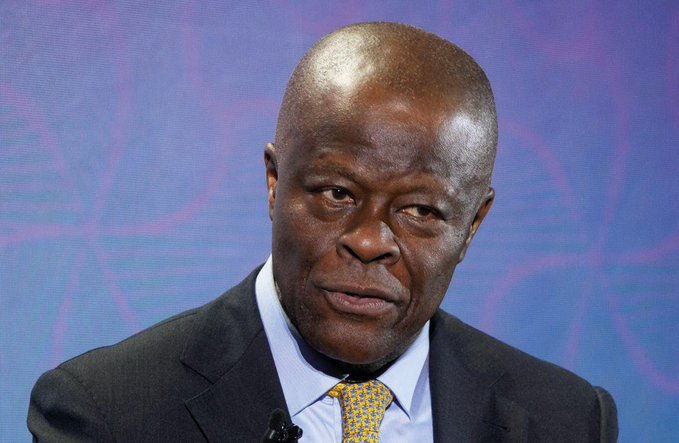Olayemi Cardoso, governor of the Central Bank of Nigeria (CBN), said the 1,000 staff who left the bank were not forced to leave.
Cardoso spoke on Friday at the resumed house of representatives investigative hearing on the disengagement of the 1,000 workers by CBN.
On December 4, 2024, the apex bank said its early exit package (EEP) was entirely voluntary and without any negative repercussions for eligible staff.
CBN’s statement followed reports that 1,000 staff were sacked from the apex bank.
Reacting to the development, the house of representatives asked the CBN to suspend the “planned” retirement of 1,000 staff.
The lower chamber had also set up an ad hoc committee to investigate the “process and legality” of the exercise.
However, on last week Friday at the resumption of the investigative hearing, the CBN governor said the 1,000 members of staff were not forced to quit.
Cardoso, who was represented by Bala Bello, CBN’s deputy director of corporate service, also said the early exit programme, the restructuring and reorganisation was to optimise the bank for enhanced efficiency.
“They are basically ways and means through which the performance of an organisation is optimised by putting, ensuring that round pegs are put in right holes,” Cardoso said.
“The manpower requirement of the bank is actually met.
“I’m very happy to mention, Mr. Chairman and members of the committee, that the early exit program of the central bank is 100 percent voluntary.
“It’s not mandatory. Nobody has been asked to leave, and nobody has been forced to leave. It’s a completely voluntary programme that has been put in place.
“I believe several organisations across the world, and even within this country, both in the private sector and the public sector, are undertaking similar exercises. So nobody has been asked to leave. With a lot of humility, I will tell you that this same program that is taking place is not at the instance of the bank.”
Cardoso said CBN had been faced with several challenges.
“In the past, you have had cases of stagnation and lack of career progression. I mean, in an organisation, you’ve got a pyramid where from each level to the next level, you know, the gap keeps narrowing. If not, you are going to have a quasi-organisation, inverted pyramid,” he said.
“There are several instances in which similar exercise took place in the central bank, which has happened several times. This is not the first time. It’s not the second time. It’s not the third time. It has happened several times.
“You’ve had instances in which people at the top request that, look, it’s going to take me X number of years to actually aspire to become a director in an organisation. But right now, there’s no vacancy. And the person sitting next to me probably has eight years to go. Meanwhile, I have seven.
“So there’s no career growth. And a lot of opportunities are out there. For example, among the people that have left, there are, like, three or four people who are going to set up a bank.
“The approach that we told them, literally, anything you want to do, if you need the support of the central bank, you are done. So the popular demand then was at the top, people that are stagnated, people that don’t have any career progression any longer, they have reached their peak, and they are willing to go and take other risks before they get to an age where they become scared to take risks.
“You know, those programmes are actually put in place to ensure that those people are given an opportunity to actually exit, go and start other things with their lives.
“But in this particular case, based on popular request, and I came with the Union Leader of the bank, the staff requested that in this case, similar opportunity should be extended to other categories of staff.
“In the entire period that similar exercise has taken place, it’s only people within a certain cadre, within the director cadre. The deputy director and directors who feel they want to go and start some other things, and assistant directors are given.
“But for the first time in the over 60 years history of the bank, the early exit program is extended to everybody who is actually willing to take it. And this came at the instance of the staff. So it’s not mandatory, it’s not compulsory, there’s no coercion, there’s no forceful exit, and there’s no intimidation for anybody to take it.
“In fact, when this same thing was approved by the bank, and it was open, the number of staff that actually came forward to take it was even very amazing. Like I told you, there are some other people that are even thinking of going to start with their own bank. Those who want to take it took it, and those who don’t want to take it are still in the bank.”
Usman Kumo, chairman of the ad-hoc committee, said the investigation will be fair to all the parties involved.





